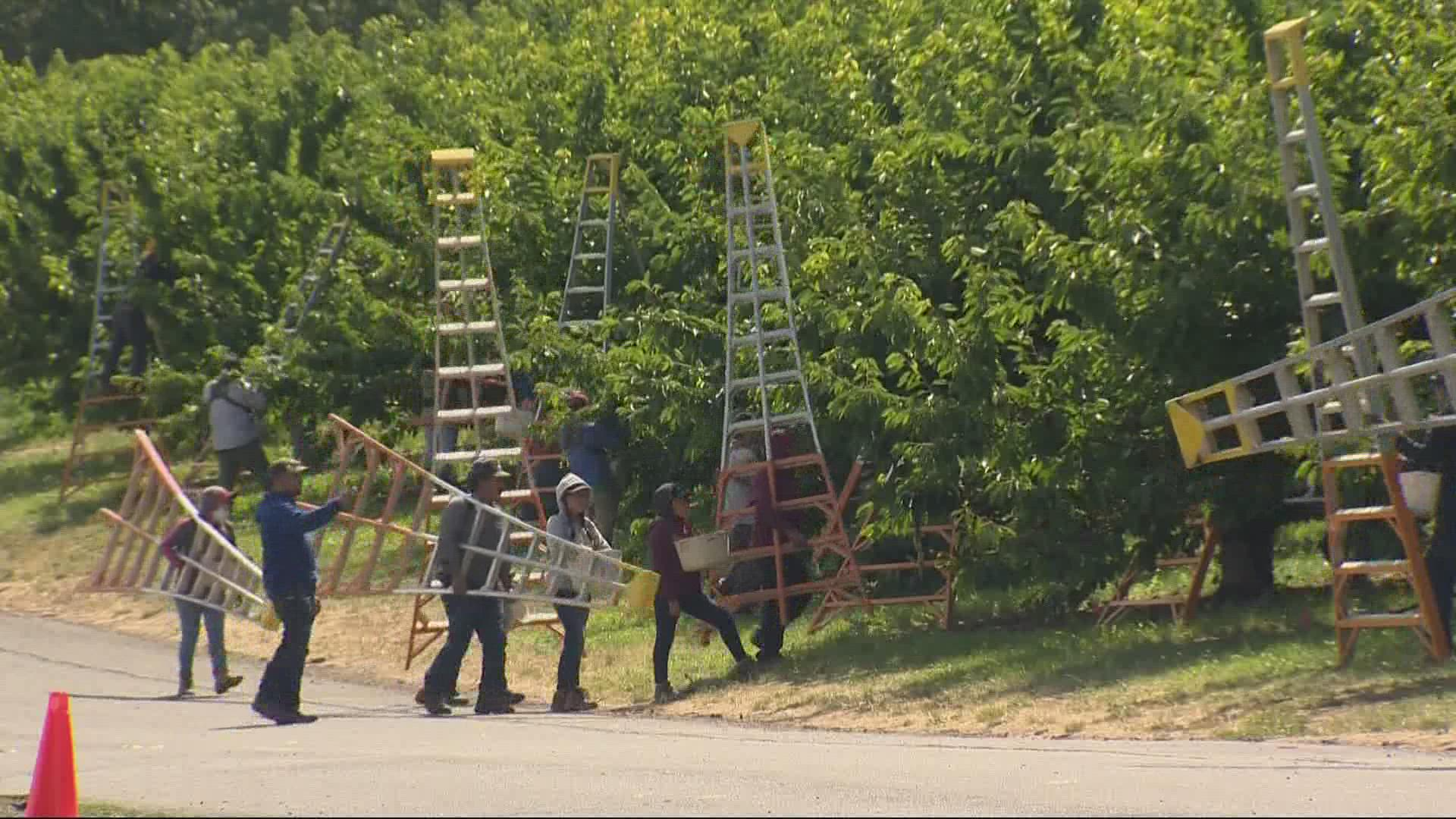OREGON, USA — Last year's heat wave brought big changes to Oregon, like new, permanent requirements for employers to protect employees who work in the heat from heat-related illnesses, such as heat exhaustion and heat stroke.
According to Oregon Occupational Safety and Health (Oregon OSHA), when the heat index hits or exceeds 80 degrees Fahrenheit, employers need to provide shady areas for workers to rest, more break time and access to plenty of water. When it exceeds 90 degrees, breaks must be longer, communication must become more frequent and each worker must be monitored more closely throughout the shift.
"That might be a buddy system, where they only have maybe teams working together on a site where it's really remote. Or where the supervisors are going around checking in on the employees," said Paul Cirner, an associate attorney with Ogletree Deakins. "In addition to the communication and monitoring, they also require written plans ... the biggest one is a written rest break schedule that takes into account the type of work the workers are doing, what their exposure to heat is and certain intervals at which they have to take breaks."
OTHER STORIES: 'I truly never thought I would see this day': Portland woman receives first AC unit in 29 years
These rules apply mainly to outdoor workers — like those in construction or agriculture — but apply to indoor workers when there is no climate control.
Dangerous heat exposure is especially a risk for farm workers, according to Ira Cuello Martinez, policy at advocacy director for Pineros y Campesinos Unidos del Noroeste ( PCUN), Oregon's farm worker union.
"You're constantly moving and doing repetitive motions, having to bend down, and there aren't many shaded structures when it comes to the field or doing work in agriculture," he said.
Just last year, Sebastian Francisco Perez, a migrant farm worker providing for his family back in Guatemala, died while installing irrigation pipes during the heat wave.
"Sebastian was working by himself during this heat wave and wasn't found until late after the fact that he was was missing and not showing up or other folks have not seen him," said Cuello Martinez. "That's very concerning, that anyone would work outside in excessive heat — 90 plus degrees, 100 plus degree weather — and the employer or other workers not knowing necessarily what they're doing or how they're experiencing working in those conditions."
OSHA inspectors will be checking on employers all summer to see their plans for protecting workers. Employees who feel rules aren't being followed can also submit complaints directly to the state without fear of retaliation.

